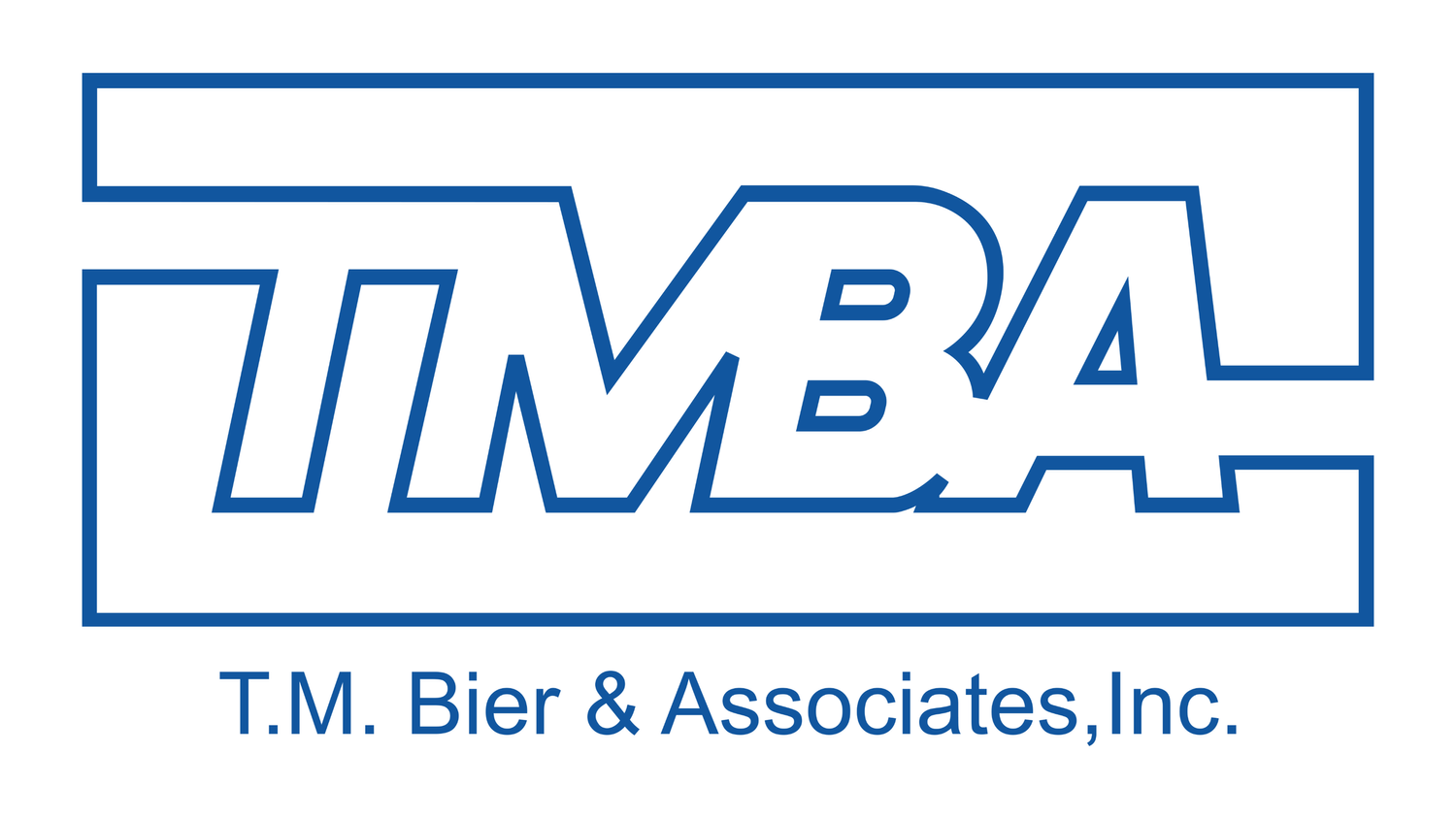
TMBA BLOG
15 Ways To Reduce Energy Bills While Optimizing For Indoor Air Quality
The commercial buildings industry is gearing up for a return to occupancy. Although it may seem like a return to business as usual, at least one pandemic-era change will stick around: The idea that indoor air quality (IAQ) matters. In fact, 80% of recently surveyed commercial real estate companies expect healthy building initiatives to shape their strategies over the next three years.
Discover TMBA's Manhattan Office: A Hub of Excellence in the Heart of NYC
Welcome to TM Bier & Associates' (TMBA) Manhattan office, a strategic addition to our growing presence in the New York metropolitan area. Located in the iconic Rockefeller Center at 600 5th Ave, Floor 2, New York, NY 10020, our Manhattan office is a testament to our commitment to serving our clients with excellence, convenience, and efficiency.
TMBA's Retrofit of 55 Water Street's Building Management System in New York City
In the heart of New York City's Financial District stands the massive structure of 55 Water Street. Not just notable for its size and history, this behemoth of a building has also been at the forefront of technological advancements in building management systems (BMS). And when it was time to say goodbye to the old Honeywell BMS, T.M. Bier & Associates (TMBA) stepped up to provide a state-of-the-art solution.
New Life for Aging Facilities: Four Strategies for Future-Proofing Older Buildings
A top priority for building owners and managers of aging buildings is to create a competitive, productive, and efficient environment for their tenants. This is a challenge because in these older facilities – whether they are office buildings, hotels, or educational institutions – the infrastructures and systems are often outdated and inadequate. Consequently, maintenance and operations costs are high, space utilization is inefficient and poorly managed, and innovative technology is lacking. This blog post explores four strategies for converting existing facilities into smart buildings that efficiently and cost-effectively address the current and future needs of demanding tenants.
Harnessing the Power of Building Management Systems in Commercial Real Estate
As a living, breathing entity, a commercial office building possesses a complicated network of systems vital to its functioning. From heating and cooling mechanisms to lighting and security systems, it teems with a labyrinth of subsystems, all working in harmony to create an environment conducive to productivity, comfort, and safety. Such complexity often poses unique challenges for facility managers and chief engineers alike. They must ensure the seamless operation of these systems and adapt to the evolving needs of occupants, all while adhering to stringent sustainability standards and regulations. Enter Building Management Systems (BMS) - a powerful tool that can be the key to unlocking unprecedented control, efficiency, and cost savings in your commercial real estate.
Breathe New Life into Your Buildings: The In-depth Guide to BMS Retrofitting
As the lifeline of modern infrastructures, Building Management Systems (BMS) are essential for orchestrating the diverse, often complex, operations within buildings. They enable functionality, efficiency, and comfort, serving as the central nervous system of any edifice. However, like all systems, a BMS is not impervious to time and technological advancements. As they age, these systems can become less efficient, unable to meet contemporary standards or leverage new technologies. Read more.
Decoding the Basics of Building Management System Design
As businesses and industries evolve, the need for more integrated, efficient, and sustainable infrastructure becomes increasingly clear. At the heart of this shift is the adoption of sophisticated Building Management Systems (BMS), designed to oversee and optimize the performance of a facility's mechanical and electrical systems. In this blog post, we will unravel the basics of BMS design and how T.M. Bier & Associates can help create a streamlined, energy-efficient, and future-ready establishment for your business.
NYC LL97 & The Indispensable Role of Building Management Systems
In the heart of New York City, TMBA is at the forefront of providing building management system (BMS) services. Our mission is to guide building owners, facility managers, and chief engineers through the labyrinth of local laws and regulations. One such law that has been a significant focus in recent years is Local Law 97 (LL97), a pioneering piece of legislation with profound implications for the city's built environment.
Conducting the Symphony of Buildings: The Essential Role of BMS Integrators
Imagine a modern building. Just like an orchestra, a building comprises various systems - HVAC, lighting, security, access control, and more. Each of these systems plays a crucial role, but without proper integration, the building may not operate as efficiently and harmoniously as it could. This is where Building Management System (BMS) Integrators come into play.
A Beginner’s Guide To Building Management Systems
In this article, we will explore what chillers and chiller management systems are, their interaction with BMS, and how a BMS integrator can enhance the control and efficiency of a building's systems. Read more.
Integrating Chillers with Building Management Systems: Unleashing the Power of Your HVAC
In this article, we will explore what chillers and chiller management systems are, their interaction with BMS, and how a BMS integrator can enhance the control and efficiency of a building's systems. Read more.
Smarter Buildings: The Power of A.I. in Building Management Systems
In this blog post, we delve into the extraordinary impact of AI on building management systems, exploring how it reshapes the future of the industry. With advanced data analytics, machine learning algorithms, and predictive modeling, AI empowers BMS to become highly intelligent, proactive entities.
Building Management System Maintenance: What Is It?
Building Management Systems (BMS), in their essence, serve as an intelligent network of interconnected devices and wiring that collectively govern the operational efficiency of a building. The term "BMS Maintenance," however, is often shrouded in misconceptions. Many people picture a technician with a toolkit, busily conducting mechanical maintenance on the system. In reality, the concept of BMS maintenance is more nuanced and technology-driven.
Building Management System (BMS) Technicians: The “Building Detectives”
When there is a complaint about one room in the building being hotter or cooler than the rest of the building, BMS Technicians have to act like detectives to decode the problem. They need to understand the building's many integrated systems and the components within them. This requires a level of knowledge and experience that goes beyond what many other building professionals possess.
Flexible Buildings: 5 Elements To Create Buildings ready for the new world of work
The coronavirus crisis has been more than just a short-term shock to the system. It has prompted a profound long-term rethink of what office buildings are really for, and how they should perform in the future. With more flexible work patterns, flexible teams and flexible organisations, should we not also demand more flexible buildings? But what do we mean by a flexible building? How can we define its key attributes? What are the key benefits of developing a flexible building and how can real estate professionals go about delivering one? These are the questions that this report sets out to answer.
Optimizing Steam Systems With Building Management Systems
Steam systems are a crucial part of many buildings, providing heat, hot water, and even power in some cases. However, these systems can be quite complex and can require a significant amount of energy to operate. This is where building management systems (BMS) come into play.
Hospital Emergency Preparedness Must Cover the Basics of Infrastructure Resilience
When hospitals are confronted with a health emergency episode, the capacity, availability and resilience of physical infrastructure systems are often assumed as ready and with unlimited capacity. However, in real-life situations, inadequate planning and a misinterpretation of infrastructure capabilities and capacities leads to essential component failures, and to breakdowns in overall robustness. Without sound and operational technical systems in place, both patients and hospital staff are at risk.
Optimizing Building Performance with a Building Management System & HVAC Controls
HVAC controls are an important component of building management systems, as they help to regulate the temperature, humidity, and air quality. The integration of these controls into a BMS can lead to energy efficiency, cost savings, improved comfort, and increased safety. The integration of HVAC controls into a building management system has a number of benefits:
Aging BMS’s put your building & business at risk – start your modernization plan today
BMS modernization can be done in manageable steps that optimize your investment while maximizing the benefits. Choosing the best time to do this upgrade can help. This should be done well before the end of its lifecycle, enabling an incremental upgrade that extracts the greatest lifespan, keeps the software up to date, gains performance enhancements, and protect against cyberattacks.
Three Essential Elements of Next Generation Building Management Systems (BMS)
In this paper we explain factors driving evolution of BMSs and describe three essential elements necessary for solving management challenges of today and tomorrow. We will also explain how these elements put you on the right path to benefit from future emerging digital technologies.




















